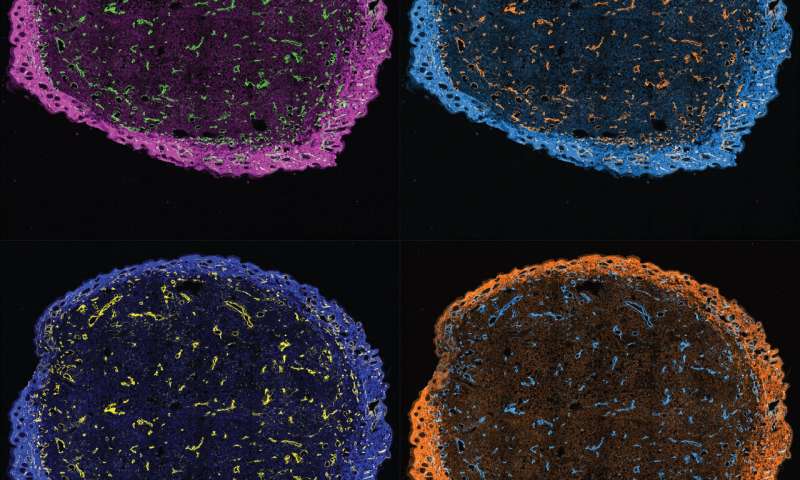Researchers at MIT Boston have developed a collagen immunotherapy that defends cells from any type of solid tumor.
Within the scientific community, for some time now, we have been trying to find ways to limit the benefits of immunotherapy to cancer alone, by isolating healthy tissues. Therefore, a team at MIT Boston, led by Professor Dane Wittrup, has developed a technique that involves the use of cytokines, small proteins released by immune cells. However, never before had they been used in an oncological treatment because of the toxic effect on the tissues, making it unsuitable for “generic” therapies.
This team of researchers then raised the question of how to avoid the release of cytokines after their injection into the cancer tissue. Published in the Science Translational Medicine, the technique involved the use of collagen, a protein that acts effectively for the treatment of cytokines. Lumican, a protein that binds effectively to collagen, was then chosen. At this point, the scientists started two types of experiments on laboratory mice, comparing the effect of the only cytokines with the injection attached to the lumen that binds to the collagen. And the results were comforting from this point of view.

Credit: Noor Momin and Felice Frankel
It has been verified that mice affected by cytokine treatment alone have not survived, while more than 90% survive when affected by combinations of Lumican treatments. The problem of toxicity associated with treatment alone is therefore also eliminated.
It is therefore hoped that this study will act as a forerunner to develop other techniques involving the use of Lumican for cancer treatments.

































